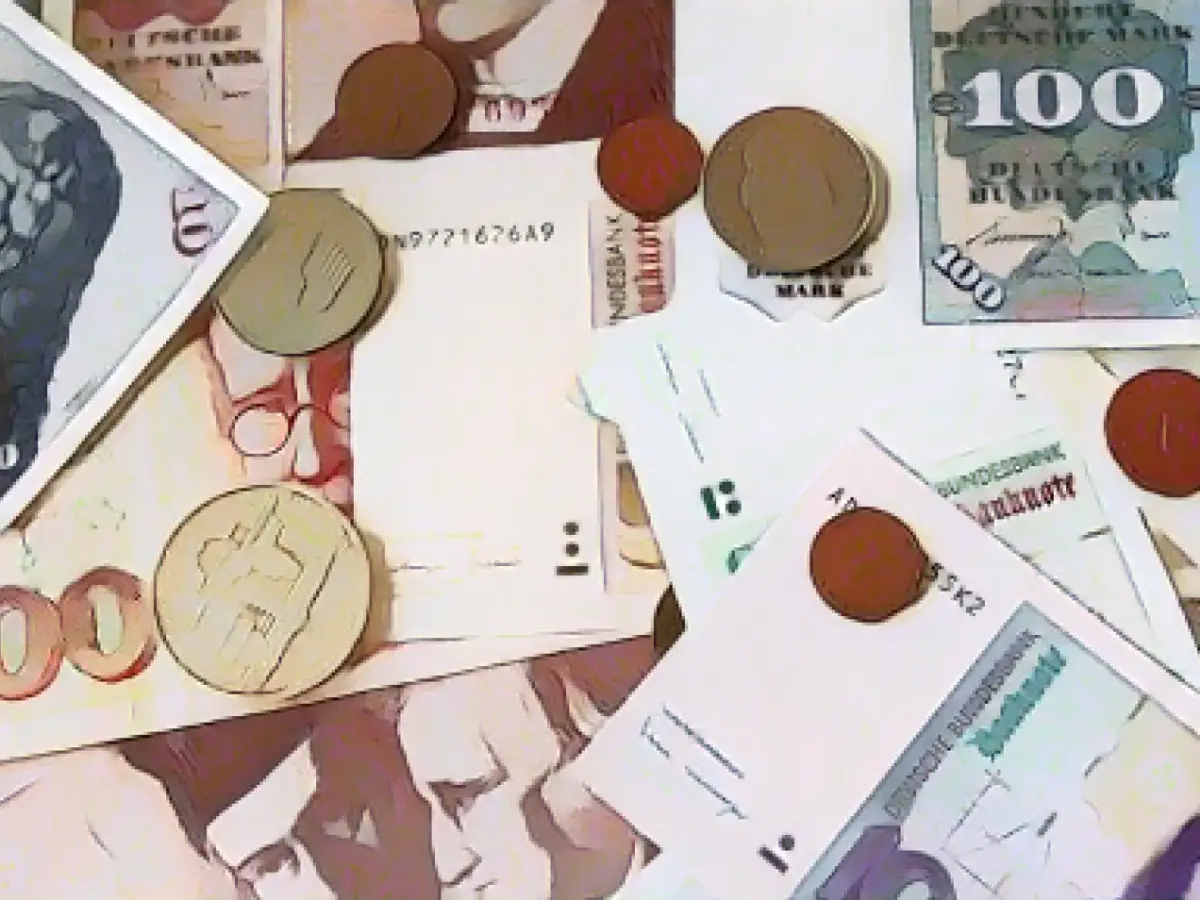Currency - Bundesbank exchanges more than four million Deutschmarks
Whether when clearing out or tidying up, when moving house or after the death of a relative: Even more than 21 years after the introduction of euro cash, old Deutschmarks are still turning up and being exchanged in Lower Saxony and Bremen. At the four Bundesbank branches in Lower Saxony, which also cover Bremen, coins and bills to the value of 4.62 million Deutschmarks had already been handed in and exchanged for 2.36 million euros by the end of November, as the regional head office of the Bundesbank announced on request. 8418 exchanges have been recorded so far.
"I am always impressed by how many Deutschmarks have not yet found their way back to the Bundesbank, even in the third decade after the national currency was replaced by the euro," Bundesbank board member Burkhard Balz told the German Press Agency. According to the bank, the total value still outstanding at the end of November amounted to just under 12.2 billion marks (around 6.24 billion euros).
With the 4.62 million euros exchanged between January and November, almost one eleventh of the nationwide total of 53 million euros is attributable to Lower Saxony alone. The employees in the Hanover branch had to convert the most: 3722 times were exchanged here, an average of 15 times a day. At a good 2.32 million Deutschmarks, almost half of the state-wide total was accounted for by the state capital alone. In Oldenburg, 1.07 million Deutschmarks were exchanged in 2001, in Osnabrück 1480 transactions and a good 680,000 Deutschmarks, in Göttingen 1215 transactions and just under 550,000 Deutschmarks. The Bundesbank closed its branch in Bremen in 2015.
Overall, significantly more customers are making their way to the branches again. During the coronavirus pandemic, the number of exchange transactions had fallen significantly. This year, each of the four branches in Lower Saxony had already recorded more exchanges by the end of November than in the entire previous year. The most significant increase was in Oldenburg, where 40 percent more exchanges were recorded by the end of November than in the entire previous year.
According to the Bundesbank, there is no end in sight to the influx of old bills and coins. "We expect that a lot of Deutschmarks will continue to be exchanged in the coming years," said Balz. "Especially when cleaning out inherited houses and apartments, it is likely that Deutschmarks will still be found." Bills and coins can be exchanged for an unlimited period and free of charge at all Bundesbank branches.
Bundesbank on DM circulation ECB on the exchange of national cash
Read also:
- A clan member is punished here
- Traffic lawyer warns: Don't talk to the police!
- Will he be convicted as Jutta's murderer after 37 years?
- He also wanted to kill his cousin
- Despite being almost two decades past, old Deutschmarks continue to surface and are exchanged in Lower Saxony and Bremen, particularly at the Bundesbank branches in these regions.
- By the end of November, 4.62 million Deutschmarks had been handed in and exchanged for 2.36 million euros at the four Bundesbank branches in Lower Saxony and Bremen.
- In Lower Saxony, approximately one eleventh of the nationwide total of exchanged Deutschmarks was accounted for, with the Hanover branch handling the most transactions.
- The Bundesbank closed its branch in Bremen in 2015, but the other branches in Oldenburg, Osnabrück, and Göttingen still see a significant amount of Deutschmarks being exchanged.
- Bundesbank board member Burkhard Balz stated that even in the third decade after the national currency was replaced, there are still a substantial amount of Deutschmarks yet to be returned to the Bundesbank.
- The Bundesbank expects that a large number of Deutschmarks will continue to be exchanged in the coming years, especially during the process of cleaning out inherited properties.
Source: www.stern.de








